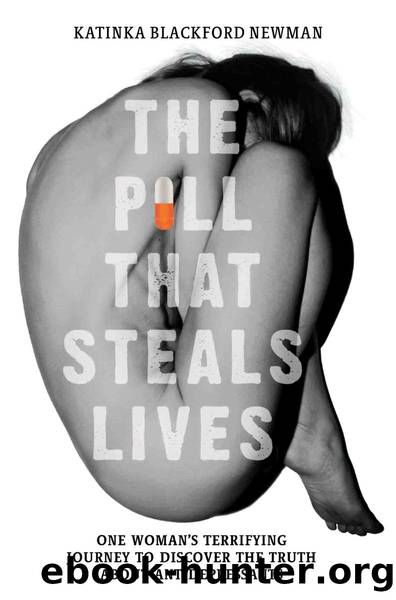The Pill That Steals Lives--One Woman's Terrifying Journey to Discover the Truth About Antidepressants by Katinka Blackford Newman

Author:Katinka Blackford Newman [Katinka Blackford Newman]
Language: eng
Format: epub
ISBN: 9781786062253
Publisher: John Blake Publishing
Published: 2016-01-15T00:00:00+00:00
It all started in the mid-1990s when Professor Kirsch was approached by a bright young graduate student, Guy Sapirstein, with an idea to look at the extent to which antidepressants work because of their placebo effects. Thatâs because when people take a pill, particularly if it is given by a doctor, then sometimes they get better regardless of whether it is a real drug or a sugar-coated tablet. Instead of doing a brand-new study, they decided to look at the old studies, a process known as a meta-analysis. Together, they analysed 38 clinical trials and were amazed to find that all of the groups got better whether they were receiving the drug, psychotherapy, the placebo or no treatment at all. They were sure they must have made a mistake, so re-analysed the statistics but they kept coming up with the same results and eventually published their findings that antidepressants, according to their data, appeared to be only moderately more effective than sugar pills.
Understandably there was a lot of controversy when the research came out. It was pointed out that their study didnât include unpublished trials by the drug industry. Kirsch and Sapirstein didnât even know at that time that the drug companies regularly withhold trials from publication. To their astonishment, they discovered that nearly 40 per cent of all the trials on antidepressants hadnât been published. To obtain copies, they had to use the Freedom of Information Act 2000 and once successful, they undertook a second meta-analysis, which included all the studies â published and unpublished. This time around the results were staggering: they found antidepressants didnât work moderately better than placebo, they worked almost no better at all.
When they looked at all the trials, there was a tiny difference â 1.8 on the Hamilton Rating Scale (HAM-D), which measures depression. The National Institute for Health and Care Excellence (NICE), which drafts treatment guidelines for the NHS in the UK, has established there needs to be a 3-point difference between drug and placebo for it to be clinically significant. Even the small difference between drug and placebo can be explained by the fact that if you are taking the antidepressant, you will experience side effects â dry mouth, diarrhoea, and forgetfulness. And, as Kirsch states, if you get those side effects then you will think you have got the real drug and so will get better.
The results were better for people who were severely depressed, but even then they only rated 4 points better than the placebo on the Hamilton Depression Scale. The startling conclusion of Professor Kirschâs research was that 85â90 per cent of people arenât gaining any clinically meaningful benefit from the drug itself.
This was not the first time that hidden drug trials showed that antidepressants were ineffective. Four years earlier, in 2004, Professor Tim Kendall raised a storm when, as director of the National Collaborating Centre for Mental Health (NCCMH), he went public with the fact that he was handed previously confidential information.6 It contained evidence Glaxo (GSK) had unpublished trials showing Seroxat was not effective in treating children for depression.
Download
This site does not store any files on its server. We only index and link to content provided by other sites. Please contact the content providers to delete copyright contents if any and email us, we'll remove relevant links or contents immediately.
Hit Refresh by Satya Nadella(9137)
When Breath Becomes Air by Paul Kalanithi(8447)
The Girl Without a Voice by Casey Watson(7889)
A Court of Wings and Ruin by Sarah J. Maas(7847)
Do No Harm Stories of Life, Death and Brain Surgery by Henry Marsh(6941)
Shoe Dog by Phil Knight(5269)
The Rules Do Not Apply by Ariel Levy(4970)
A Higher Loyalty: Truth, Lies, and Leadership by James Comey(4964)
Hunger by Roxane Gay(4928)
Tuesdays with Morrie by Mitch Albom(4784)
Everything Happens for a Reason by Kate Bowler(4743)
The Immortal Life of Henrietta Lacks by Rebecca Skloot(4588)
Millionaire: The Philanderer, Gambler, and Duelist Who Invented Modern Finance by Janet Gleeson(4478)
How to Change Your Mind by Michael Pollan(4357)
All Creatures Great and Small by James Herriot(4322)
The Money Culture by Michael Lewis(4207)
Man and His Symbols by Carl Gustav Jung(4137)
Elon Musk by Ashlee Vance(4128)
Tokyo Vice: An American Reporter on the Police Beat in Japan by Jake Adelstein(3996)
